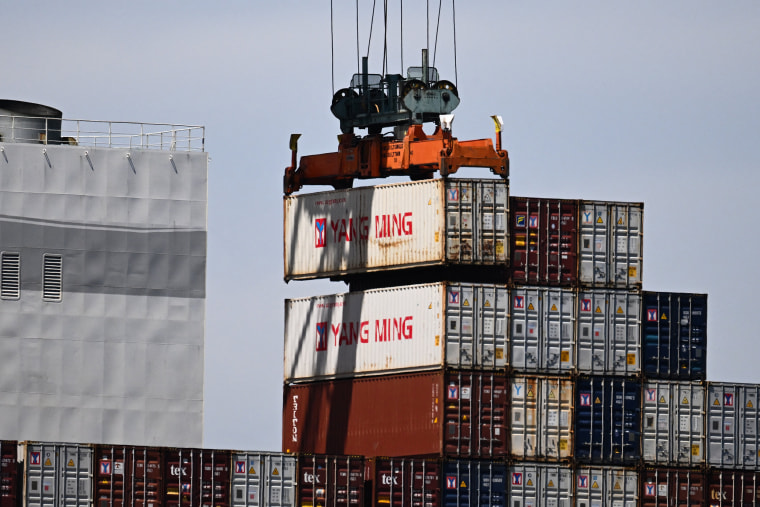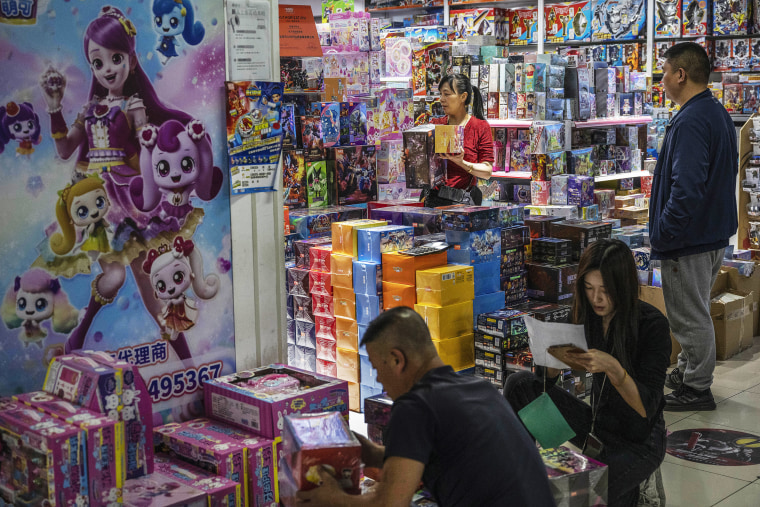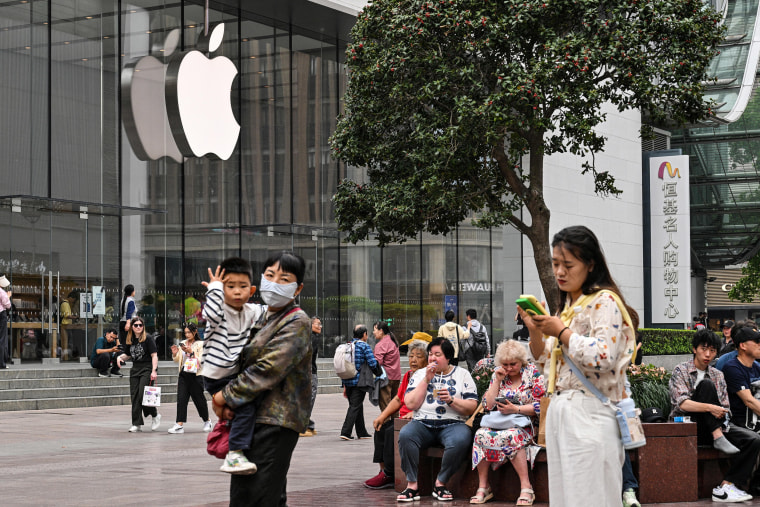HONG KONG — Faced with steep tariffs slapped on their goods by President Donald Trump, many U.S. trade partners have scrambled to offer concessions in exchange for lower rates, making frantic calls to the White House and rushing officials to Washington.
But not China, which not only has not sought negotiations but has matched Trump tariff for tariff.
On Friday, Beijing said its total levy on U.S. goods would increase to 125%, equaling the combined tariffs Trump has imposed on China since he announced duties on a wide range of countries at his “Liberation Day” event at the White House last week.
The spiraling trade war between the U.S. and China, the two biggest economies, has implications for the whole world, sending global markets convulsing in the past week.

Trump, who alleges that China has long “ripped off” the United States by selling it far more goods than it purchases, appears hopeful that Beijing will be forced into negotiations, telling reporters Thursday that the tariffs — which together with earlier levies now reach an eye-watering 145% — were his way of “resetting the table.”
Trump’s approach not only confuses China but is also likely to hinder communication and roll back progress in U.S.-China ties, analysts told NBC News.
"The specific tactics and the way they’ve been rolled out, it produced antibodies on the Chinese side," said Rick Waters, a former State Department diplomat who is now the Singapore-based director of Carnegie China.
"Calling publicly for Xi Jinping to talk to the president… it’s just not going to work," he added, referring to to the Chinese president.
Wu Xinbo, a government adviser serving in China’s Foreign Ministry and a professor at Fudan University in Shanghai, said Beijing had decided it was preferable to keep fighting until the U.S. was ready to compromise.
If China concedes, the U.S. will see it as a “sign of weakness” and keep pushing for more, he said.

China also has a strong distaste for Trump’s negotiating style, which is to curse, blast and push adversaries around to achieve maximum concessions, Wu said. Such tactics reinforce China’s impression that the U.S. is trying to block its development.
China “is not afraid of any unreasonable suppression,” the country's president Xi Jinping said Friday in his first public comments on tariffs since Trump began hiking them last week. He did not mention the U.S. by name.
“Regardless of how the external environment changes,” he said, “China will remain confident and focused, concentrating on doing its own thing well.”
Stability as the goal
Even as the escalating U.S.-China trade conflict has sent alarm bells ringing globally, experts say China is driven by a desire for stability, which its government prizes more than almost anything else.
Much of China’s modern history has been marked by the opposite of stability. In just over a century, tens of millions of Chinese people are estimated to have been killed by civil war, famine and two world wars. That’s on top of what China calls its “century of humiliation” from 1839 to 1949, when the country was plundered by colonial powers, memories of which still influence policy today.
In the decades after China began to reform and open up to international trade in 1978, its economy skyrocketed, lifting more than 800 million people out of poverty and making China one of the biggest winners from globalization, even as other countries accused it of not always playing by the rules.
Partly for that reason, China is also trying to use the tariff chaos to position itself as a broker for global stability and a defender of free trade alongside traditional U.S. allies.
In a meeting in Beijing on Friday with Spanish Prime Minister Pedro Sánchez, Xi said that China and the European Union must join forces to promote globalization and “jointly resist unilateral bullying.”
Such entreaties are complicated, however, by existing disputes with Europe, which seeks a more balanced trading relationship with China and is worried that U.S. tariffs will redirect more cheap Chinese exports toward its market.

The U.S. and China are unlikely to start talking anytime soon, said Tianchen Xu, a Beijing-based senior economist at the Economist Intelligence Unit, a financial forecasting service, though Trump and Xi could be stirred to action as their economies feel the effects of the tariffs in the coming months.
“It’s just about testing the resilience of the two countries,” he said.
At least for now, China is willing to be patient, Waters said.
“I think they are hunkering down for what they call struggle,” he added. “Even if it means they’re going to pay a price.”

